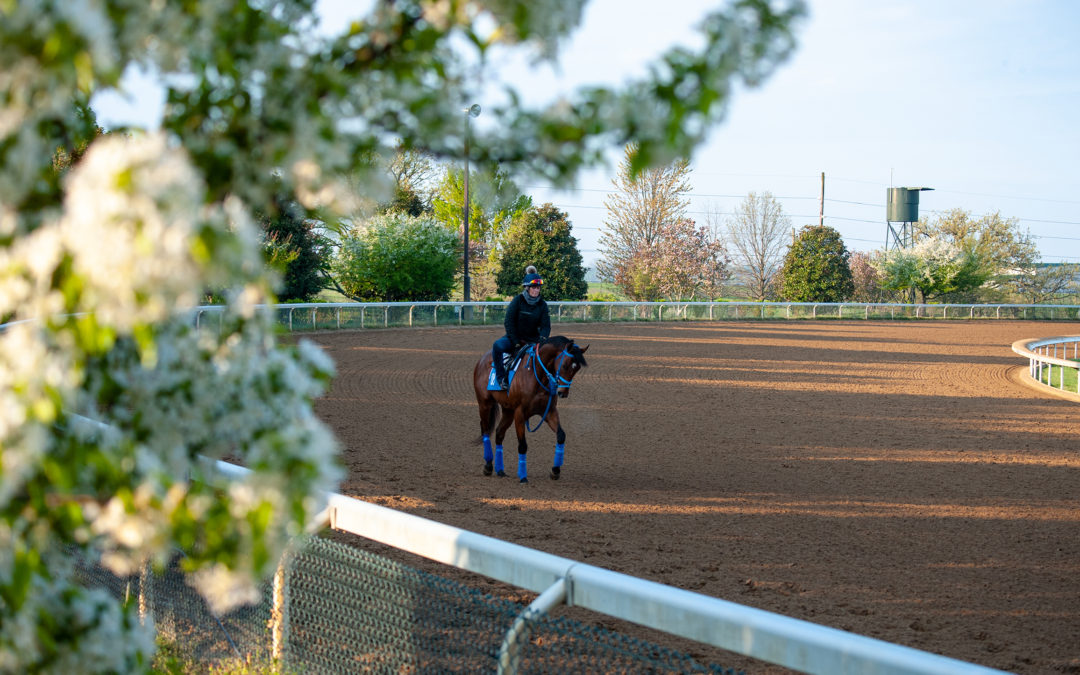When I learned a few years ago that the feelings I had of not being as good of a [rider/writer/photographer/really just insert task here] as others has a name – “Imposter Syndrome” – in a strange way it made me feel better.
Very Well Mind describes Imposter Syndrome well:
“To put it simply, imposter syndrome is the experience of feeling like a phony—you feel as though at any moment you are going to be found out as a fraud—like you don’t belong where you are, and you only got there through dumb luck. It can affect anyone no matter their social status, work background, skill level, or degree of expertise.”
In a world where the internet is a large part of our everyday life, it is easy to get wrapped up in seeing posts and feeling like you’re not taking as good of photos as Molly or writing as well as Cheri. You’re thrown into a world where it feels like everyone is doing the same thing as you – only better. That’s where the Imposter Syndrome can affect even the best artists or businesspeople.
I’ve talked before about how going through old work sometimes builds my confidence because it is easy to forget about your favorite pieces if you aren’t seeing them consistently. But as someone who likes to hear how others deal with their own insecurities and doubts to see if their methods can help me, today I decided I’d share a few of the ways I battle my own “Imposter Syndrome” feelings, even the steps don’t always 100% work.
Know your limits

One of the very most important things I’ve learned about myself is that I need to be in a certain frame of mind to flip through social media. There are days where we all feel bad about our work, that’s normal. But those days are also the ones that are the worst times to look through your social media feeds. Because of that, I know that if I’m feeling down on myself or just in a “blah” mood, I need to avoid seeing a lot of pieces from other artists or writers because I will compare my work unfavorably to theirs.
The same goes for sharing anything on social media during those days. If I’m not in a good place to have someone question the information I’m sharing or to reply with a similar photo to what I’ve taken, I stay away from posting.
Take inspiration

I am always looking for new ideas or different ways to do something so instead of thinking the work is better than mine and I’ll never do as well, I study it. I’m not looking to copy their work but am of the opinion that you can improve anything you do by seeing how others do it better – and how some do it worse.
I find that I’m in a better mindset overall if I look at others’ impressive work as a learning experience. While whatever the piece is may have made my confidence drop at first, thinking about it as a way I can improve puts me in a much better frame of mind as I scroll away or exit out of the story.
Remember you have a different styles

The great thing about art, no matter if its writing, photography, painting, or any other artistic venture is that everyone has a different style. I often remind myself of that because even though I may have a voice in the back of my head telling my I’m not as good as someone else, whatever I’m looking at is a different style than my own – and sometimes it’s a drastic difference. Sure, if I do the same piece of work it’s not going to turn out the same but usually it’s not because I’m not as good as that person as much as our styles are just different.
Congratulate their successes

I’m not sure if it’s reverse psychology but if I see something that makes me think “I’m such a fake compared to them, I’ll never be that good” or something similar, I congratulate them on making such a good piece. I may still question my own talent and success a bit after that but I find it takes me from a full blown imposter syndrome moment to a “happy for them” moment with just a tinge of the syndrome sneaking in.
Take the compliment

This one is huge toward warding off the Imposter Syndrome in my experience but it’s also the one I struggle with the most. I’ve had a few wise people tell me over the years that 95% of the time someone tells you they like your work, they truly mean it. So instead of coming up with excuses for why it’s not good or excuses for “accidents” that made it good, just say “thank you.” You aren’t making yourself sound conceited by taking the compliment when it is freely given to you. You’ve done good work, now celebrate it.
Remember your own work

Last but not least, remember the pieces of your own that you’ve loved. No, they may not look the same as a famous photographer or someone with 86 million followers on Instagram but there is a reason you love them and it’s almost definitely not because the work is bad or not up to the standards you see in others’ pieces.
Unfortunately, Imposter Syndrome isn’t an easy thing to beat but I’ve found that now I know that so many people have it that it’s easier to face.
It’s easy to compare yourself to others no matter what you do in life but there’s one more tip I can give you that should help as well: When you’re comparing yourself to others, remember that even if people are doing similar work, no one can do the same exact thing you do the way you do it. That in itself makes you anything but an imposter.

